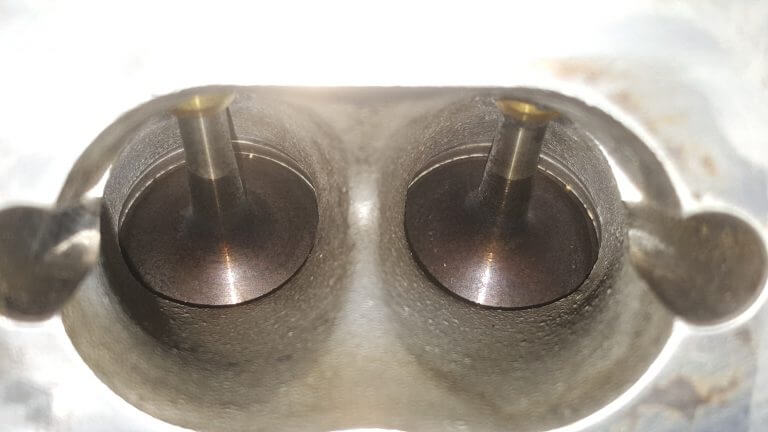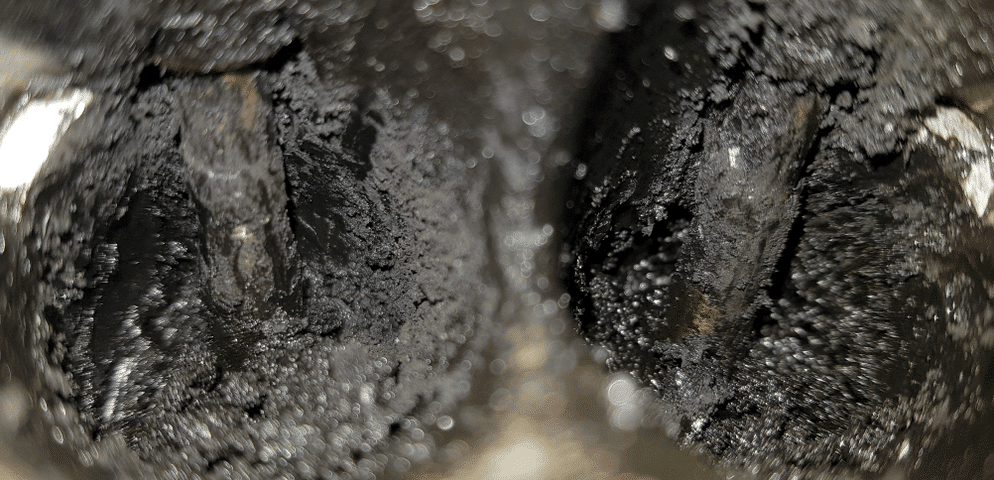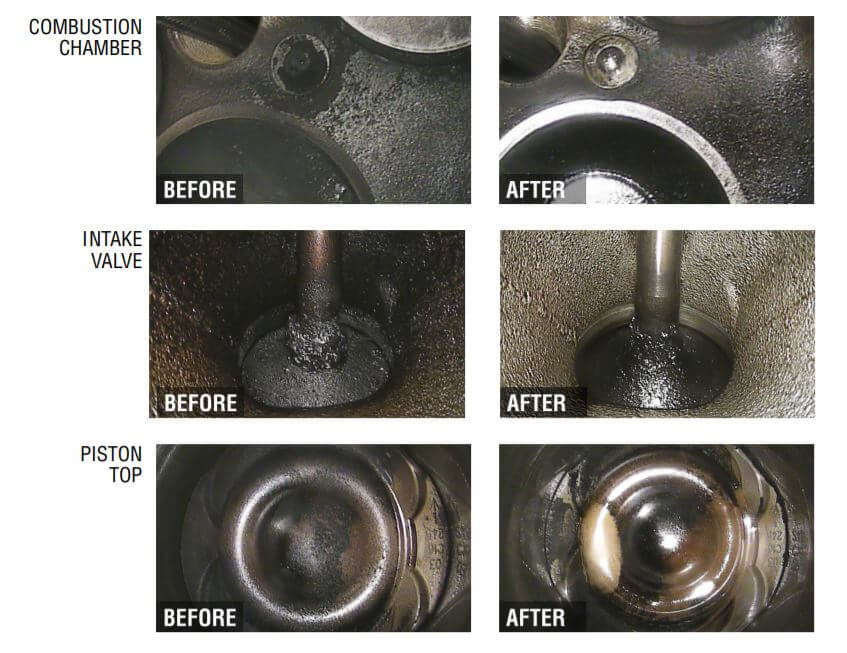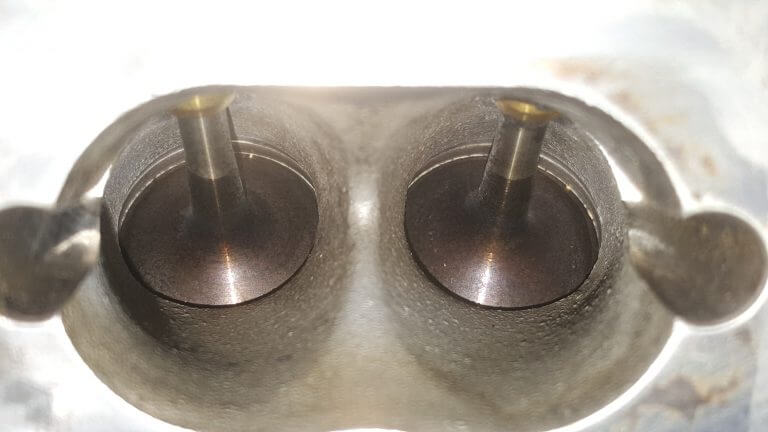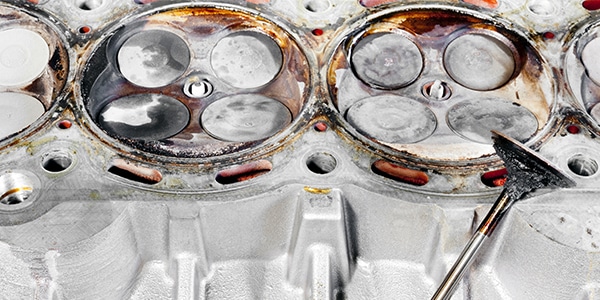Carbon deposits in engines and fuel systems can be a common headache for vehicle owners, leading to reduced performance, increased fuel consumption, and potential damage to engine components. Understanding the underlying causes of these deposits is crucial in preventing their formation and maintaining the longevity of our vehicles. The article explores the factors contributing to the formation of carbon deposits, shedding light on the importance of regular maintenance and the types of fuel additives that can help keep our engines and fuel systems clean.
Introduction
Welcome to our comprehensive article on the causes of carbon deposits in engines and fuel systems. Carbon deposits can accumulate over time and negatively impact the performance and efficiency of your vehicle. In this article, we will explore various factors contributing to the formation of carbon deposits and provide insights on how to prevent or mitigate their occurrence. So, let’s dive right in!
This image is the property of axis-international.com.
1. Combustion Process
1.1 Incomplete Combustion
One of the primary causes of carbon deposits in engines is incomplete combustion. When fuel is not burned completely, it forms carbon particles that can cling to the engine’s internal components. Factors such as improper air-fuel mixture, inadequate spark plug functioning, or clogged fuel injectors can lead to incomplete combustion. Regular maintenance that includes cleaning or replacing spark plugs, ensuring proper fuel atomization, and addressing fuel delivery issues can help minimize carbon deposits arising from incomplete combustion.
1.2 Rich Fuel Mixture
A rich fuel mixture refers to excessive fuel relative to the available oxygen during combustion. Running an engine with a consistently rich fuel mixture can lead to carbon deposit formation. This occurs because the excess fuel does not fully combust, leaving behind unburned hydrocarbons that contribute to carbon buildup. Addressing any issues with fuel injectors, oxygen sensors, or the engine’s fuel management system is essential to prevent this.
1.3 Overheating
Overheating of the engine can significantly contribute to the formation of carbon deposits. An engine running at excessively high temperatures can cause the oil and fuel to break down and form carbon deposits on the internal components. Regular maintenance, including checking coolant levels, inspecting the cooling system, and addressing any issues with the radiator or thermostat, will help prevent overheating and subsequent carbon deposit buildup.
1.4 Ignition Timing
Improper ignition timing, whether too advanced or too retarded, can lead to carbon deposits in the engine. When the ignition timing is not synchronized correctly with the engine’s operating conditions, it can result in incomplete combustion and the formation of carbon particles. Regular tuning of the ignition system, including checking the timing and replacing any faulty components, can help maintain proper ignition timing and prevent carbon deposit accumulation.
This image is the property of rivergatemuffler.com.
2. Quality of Fuel
2.1 Low-Quality Fuel
Low-quality fuel can significantly form carbon deposits in engines and fuel systems. Such fuel may contain impurities, excessive contaminants, or an insufficient octane rating, all of which can lead to inefficient combustion and the buildup of carbon deposits. It is advisable to use high-quality fuel from reputable sources to minimize the risk of carbon deposit formation.
2.2 Fuel Additives
Fuel additives can play a crucial role in preventing carbon deposit formation. They are designed to improve fuel quality, enhance combustion efficiency, and reduce harmful emissions. Fuel additives can help remove existing carbon deposits, prevent new deposits from forming, and clean the fuel system. Regularly using quality fuel additives, as the manufacturer recommends, can help maintain a clean and efficient engine.
2.3 Octane Rating
Fuel’s octane rating refers to its ability to resist knocking during combustion. Using fuel with a lower octane rating than recommended for the engine can result in knocking, which can contribute to carbon deposit formation. It is essential to use fuel with the appropriate octane rating specified by the vehicle manufacturer to optimize combustion and minimize the risk of carbon deposits.
This image is the property of www.carboncleaningmachine.com.
3. Engine Design and Maintenance
3.1 Piston Rings and Cylinder Walls
Worn-out or damaged piston rings and cylinder walls can contribute to the formation of carbon deposits. When these components do not seal properly, oil can bypass the combustion chamber, leading to oil fouling and carbon buildup. Regular maintenance, including inspecting and replacing worn-out piston rings and addressing cylinder wall damage, can help prevent carbon deposit formation.
3.2 Valve Guides and Seals
Faulty or worn-out valve guides and seals can also contribute to carbon deposits. Oil can enter the combustion chamber when these components fail to maintain a proper seal, resulting in carbon buildup. Regular inspection and replacement of valve guides and seals as necessary can help prevent this issue and ensure optimal engine performance.
3.3 PCV System
The Positive Crankcase Ventilation (PCV) system plays a crucial role in managing blow-by gases and preventing the accumulation of harmful substances, including carbon deposits. A malfunctioning PCV system can lead to the buildup of sludge and carbon deposits in the engine. Regular maintenance that includes cleaning or replacing PCV valves, hoses, and filters will help ensure the proper functioning of the PCV system and minimize carbon deposit formation.
3.4 EGR System
The Exhaust Gas Recirculation (EGR) system is designed to reduce harmful emissions by recirculating some exhaust gases back into the combustion chamber. A malfunctioning EGR system can result in inadequate recirculation, leading to inefficient combustion and the formation of carbon deposits. Regular maintenance, including cleaning or replacing EGR valves and ensuring proper system operation, can help prevent the buildup of carbon deposits.
This image is the property of axis-international.com.
4. Driving Conditions
4.1 Short Trips
Frequent short trips, especially during cold starts, can contribute to the formation of carbon deposits. In such instances, the engine may not reach its optimum operating temperature, resulting in incomplete combustion and carbon buildup. Whenever possible, combine multiple short trips into a longer drive to allow the engine to reach the average operating temperature and reduce the risk of carbon deposit formation.
4.2 City Driving
City driving, characterized by frequent stops and lower average speeds, can contribute to carbon deposit accumulation. The constant acceleration and deceleration can lead to incomplete combustion and the buildup of carbon deposits. To minimize this, it is advisable to occasionally take the vehicle on longer drives at higher speeds, allowing for more complete combustion and clearing out any existing carbon deposits.
4.3 Stop-and-Go Traffic
Driving in stop-and-go traffic, such as during rush hour, can exacerbate carbon deposit formation. The constant idling and frequent stops can result in incomplete combustion, leading to the buildup of carbon deposits. When possible, try to find alternative routes or travel during less congested times to reduce the exposure to stop-and-go traffic and minimize carbon deposit formation.
4.4 High RPM Driving
Consistently driving at high RPMs (revolutions per minute) can contribute to carbon deposit formation. Prolonged high RPM driving can result in incomplete combustion and increased exposure of the engine components to high levels of heat and stress, promoting the buildup of carbon deposits. Maintaining appropriate speed limits and avoiding unnecessary high RPM driving can help prevent excessive carbon deposit formation.
This image is the property of s19533.pcdn.co.
5. External Factors
5.1 Air Pollution
High levels of air pollution, including particulate matter and sulfur dioxide, can contribute to carbon deposit accumulation. These pollutants can interact with the engine components and fuel, leading to the formation of carbon deposits. While it may not be possible to control external air pollution levels, regular maintenance and adherence to emission control regulations can help mitigate the impact of external factors on carbon deposit formation.
5.2 Humidity
Humidity can also play a role in the formation of carbon deposits. Moisture can mix with the engine’s unburned fuel or oil vapors, creating a sludge-like substance contributes to carbon deposit buildup. While it is not feasible to control humidity levels, regular maintenance that includes proper sealing of engine components and ensuring a well-maintained ventilation system can help minimize the impact of humidity on carbon deposit formation.
5.3 Fluctuating Temperatures
Frequent fluctuations in temperature, such as extreme heat or cold, can contribute to carbon deposit formation. These temperature variations can impact the engine’s performance and result in incomplete combustion, leading to the buildup of carbon deposits. Regular maintenance, including ensuring proper insulation, using appropriate coolants, and addressing any issues with the engine’s temperature control system, can help minimize the impact of fluctuating temperatures on carbon deposit formation.
In conclusion, carbon deposits in engines and fuel systems can result from incomplete combustion, low-quality fuel, engine design, driving conditions, and external factors. Employing regular maintenance, using high-quality fuel, optimizing combustion processes, and driving responsibly can significantly reduce the risk of carbon deposit formation. By understanding these contributing factors, we can ensure the longevity and efficiency of our vehicle’s engine and fuel system.
